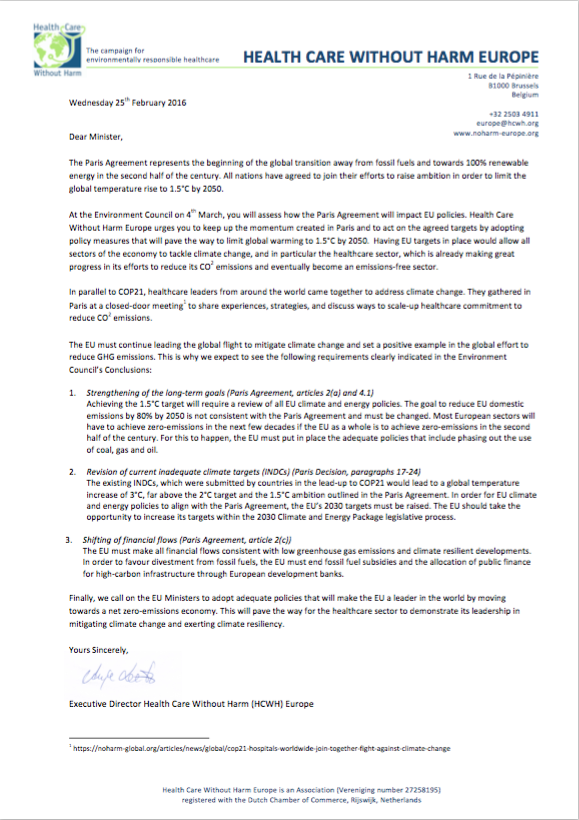HCWH Europe Calls for Action from Environment & Energy Ministers ahead of European Council Meeting
On 4th March 2016 the European Council will meet to discuss different issues including a follow up to the Paris Climate Agreement.
In advance of this, on 25th February 2016 HCWH Europe sent a letter to the European Environment and Energy Ministers to call on them to set ambitious greenhouse gas reduction targets to implement the Paris Agreement and move towards reaching a temperature increase not greater than 1.5 °C by 2050.
In the letter, HCWH Europe calls for the following:
- Strengthening of the long-term goals (Paris Agreement, articles 2(a) and 4.1): Achieving the 1.5°C target will require a review of all EU climate and energy policies. The goal to reduce EU domestic emissions by 80% by 2050 is not consistent with the Paris Agreement and must be changed. Most European sectors will have to achieve zero-emissions in the next few decades if the EU as a whole is to achieve zero-emissions in the second half of the century. For this to happen, the EU must put in place the adequate policies that include phasing out the use of coal, gas and oil.
- Revision of current inadequate climate targets (INDCs) (Paris Decision, paragraphs 17-24): The existing INDCs, which were submitted by countries in the lead-up to COP21 would lead to a global temperature increase of 3°C, far above the 2°C target and the 1.5°C ambition outlined in the Paris Agreement. In order for EU climate and energy policies to align with the Paris Agreement, the EU’s 2030 targets must be raised. The EU should take the opportunity to increase its targets within the 2030 Climate and Energy Package legislative process.
- Shifting of financial flows (Paris Agreement, article 2(c)): The EU must make all financial flows consistent with low greenhouse gas emissions and climate resilient developments. In order to favour divestment from fossil fuels, the EU must end fossil fuel subsidies and the allocation of public finance for high-carbon infrastructure through European development banks.
Read the letter in full here.

